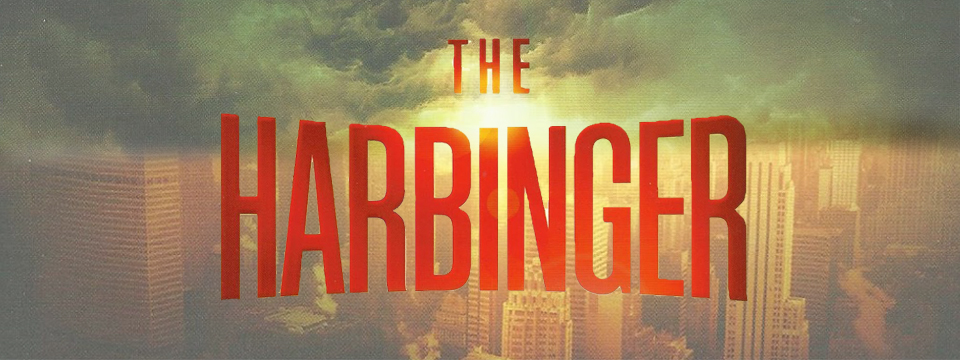OK, I’ll admit it. I am not a conspiracy theorist. When the theories arise, I tend to roll my eyes. Yet every so often a work comes along that demands attention from even we who are skeptical, and one such book claims to “hold the secret of America’s Future.”
I am talking about The Harbinger, a best-selling fiction book by Jonathan Cahn. Mr. Cahn, who leads the Jerusalem Center in Wayne, New Jersey, has become a recognized author virtually overnight. The book has been endorsed by popular radio/TV personality Glenn Beck, himself no stranger to controversy or conspiracy theories.
While the book is presented as fiction, it is clear from his website and teachingmaterials that the author thinks there is truth behind the plot. Just what is that plot of The Harbinger?
“Before its destruction as a nation, ancient Israel received nine harbingers, prophetic omens of warning. The same nine harbingers are now manifesting in America with immediate ramifications for end-time prophecy. “Hidden in an ancient biblical prophecy from Isaiah, the mysteries revealed in The Harbinger are so precise that they foretold recent American events down to the exact days. The revelations are so specific that even the most hardened skeptics will find it hard to dismiss or put down. It sounds like the plot of a Hollywood thriller with one exception… IT’S REAL.”
While it was an entertaining work, there are a number of significant problems that make this a book I cannot recommend.
“This-is-that”
We should always be cautious to sit at the feet of a teacher who has a Bible in one hand and a newspaper in another. Christians must be careful not to equate every contemporary event with a biblical prophecy because we run the risk of being wrong and therefore undermining the deep truths of the Bible and our own testimony. The Harbinger is bad about this and even directly links 9/11 to prophesies in the Book of Isaiah.
Connect the dots
The Harbinger makes several tenuous connections between contemporary events and events that occurred in biblical times. Without spoiling the entire plot, there is “a mysterious figure called ‘The Prophet’”who helps another man interpret the times viz a vis the Bible. The author links a tree at Ground Zero to a tree of ancient Israel to make a point about America’s economic future. In another instance, the disgraced politician Sen. John Edwards was said to have spoken a prophetic message at a campaign stop that has eschatological implications. At times, the parallels may be fun to think about, but we must not make as much out of them as the author leads us to do.
Whoa, cowboy!
In Scripture and modern times, titles have meaning. To call someone an apostle or prophetic is a huge deal. In The Harbinger, the mysterious figure is called “The Prophet” (capital “P”). We Christians believe the biblical canon is closed and that while God certainly can do what He wishes, he has given the Faith “once and for all, delivered to the Saints.” In the Person of Christ and the Word, we have all the revelation we will need. We are not awaiting another Isaiah or Jeremiah. The author should have been more careful than to put the mysterious figure (whose name we never find out) on such a level.
Not necessarily all bad
Allow me to say a few good things about this work. First, it gets readers to think about more serious topics than, say, the Super Bowl halftime show. Second, the author does a good job in one scene at underscoring our individual need for salvation and redemption, which comes only from God. Finally, Mr. Cahan does point up some major societal sins that we Americans have committed, and stresses that we may likely face judgment from God—or at least a downfall—for these sins of pride, lust, greed and envy.
Summary
If you read The Harbinger, it is critical to do so with discerning lenses on. If the runaway bestseller, The Shack, is a moving story full of theological problems, this book is an entertaining story full of eschatological and ecclesiological problems. Some people will be able to “eat the meat and spit out the bone” of this work, but in the end, it will likely make for a very small meal for your soul.
